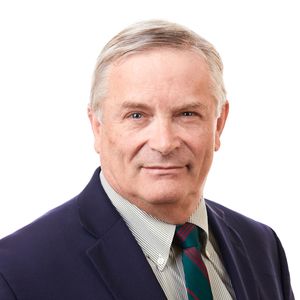Faculty Spotlight: Howard Cabral.
Collaborative work is key to developing sustainable public health solutions and improving population health outcomes. This weekly series spotlights one SPH faculty member who advances public health through collaborations within the field and across sectors.
 Can you explain your current research interests and projects?
Can you explain your current research interests and projects?
As a biostatistician, my interests are in the analysis of longitudinal and other correlated data and in clinical trials methods for behavioral and health services interventions.
My most recent collaborative projects include studies on patient navigation to reduce disparities in breast cancer care (Tracy Battaglia at BMC), mental health and substance use with focus on maternal depression (Mike Silverstein and Caroline Kistin at BMC and Emily Feinberg at SPH), health services for people living with HIV (Serena Rajabiun and Tom Byrne from the School of Social Work), maternal and child health outcomes with focus on assisted reproductive technologies (colleagues at Dartmouth and Massachusetts Department of Public Health), the diagnosis and access to services for children with autism (Emily Feinberg from SPH and Sarah Broder-Fingert from BMC), the use of technology in genetic counseling (Catharine Wang from SPH), advanced care planning in end-of-life care (Michael Paasche-Orlow from BMC), and the effects of different modalities of fluoride treatment on dental intervention in veterans (Marianne Jurasic from the School of Dental Medicine).
I am also the director of the biostatistics component of the BU Clinical and Translational Sciences Institute where I work with Janice Weinberg from Biostatistics to support the development of innovative research at BU and BMC.
How does collaborating across so many sectors enhance your work, or advance the mission of SPH?
As a biostatistician, I work in teams with clinicians, study coordinators, data analysts and managers (with a special shout-out to my colleagues at BEDAC: Clara Chen, Mike Winter, Karen Fortu, Emily Sisson, Greg Patts, Marisa Massaro, Joe Palmisano, and Susan Gomes, who are key members on almost all of my projects!).
I enjoy working with everyone on these projects. All are colleagues who are dedicated to doing work of the highest quality to improve health, “doing well to do good,” as I like to tell my students. Most importantly, they are great people. They make our work together a pleasure and a privilege for me. We are changing the world with our work.
“Professor Cabral is a sought-after collaborator, working with interdisciplinary teams on a broad range of projects. Professor Cabral really shines when working with junior colleagues and students, putting his excellent mentoring skills to good use. An award-winning teacher, Professor Cabral’s dedication to training the next generation of biostatisticians and to the proper use of statistical approaches is second to none.”
Josée Dupuis, professor and chair of the Department of Biostatistics